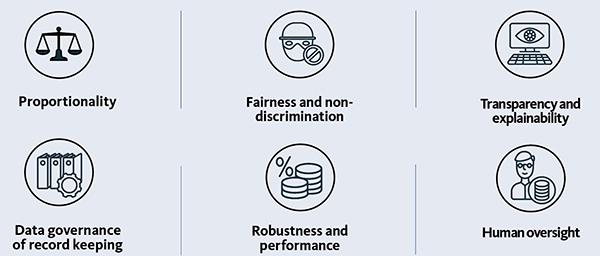
Insurance has been a heavy user of data from the early days of its existence; insurance undertakings have historically used data and data analytics processes to assess and underwrite risks, price insurance policies or pay insurance claims.
The take-up of Artificial Intelligence in all the areas of the insurance value chain raises specific opportunities and challenges.
What is artificial intelligence and Big Data?
There in not a unique definition of Artificial intelligence (AI), but the term is often used to refer to IT systems that perform functions usually performed by human capabilities. AI can ask questions, discover and test hypotheses, and make decisions automatically based on advanced analytics operating on extensive data sets.
Machine learning is one subcategory of AI, where computers have the ability to learn from data through appropriate algorithms, allowing computers to identify hidden patterns (correlations) in data without being actually programmed to do so, in order to perform a concrete task.
Big Data Analytics (BDA) commonly refers to large volumes of data that can be generated, processed and increasingly used by digital tools and information systems for making predictive, descriptive and prescriptive analysis. This capability is driven by the increased availability of structured data, the ability to process unstructured data, increased data storage capabilities and advances in computing power. How does it apply in insurance and pension sectors?
Insurance has been a heavy user of data from the early days of its existence; insurance undertakings have historically used data and data analytics processes to assess and underwrite risks, price insurance policies or pay insurance claims.
However, in today’s digital society, there is an increasing availability of new sources and types of data (e.g. IoT data, image data or social media data), which can be processed by increasingly powerful and complex algorithms, including AI systems, bringing several opportunities, but also some challenges.
What risks and opportunities for the markets?
The take-up of Artificial Intelligence in all the areas of the insurance value chain raises specific opportunities and challenges.
The main benefits of using Artificial Intelligence are:
- more efficient and automated processes
- prediction accuracy
- more personalised products and services
Some of the challenges arising from using Artificial Intelligence are:
- transparency and explainability issues
- the potential impact of some AI use cases on the fair treatment of consumers
- limited financial inclusion of high-risk or vulnerable consumers
How is EIOPA addressing AI and Big Data?
In March 2018 the Joint Committee of the European Supervisory Authorities (“ESAs“) published its final report on the use of Big Data by financial institutions. The report summarised the feedback received by stakeholders during a public consultation the previous year, and identified a number of opportunities and risks arising from the increasing use of Big Data by financial institutions.
In May 2019 EIOPA conducted a thematic review on the use of Big Data Analytics in motor and health insurance. This fact-finding exercise showed that around one third of the participating insurance firms were already adopting a wide variety of AI use cases across the different areas of the insurance value chain, and another third of them were experimenting with this technology.
READ THE BIG DATA IN INSURANCE REPORT
Following the publication of the thematic review, EIOPA created a consultative expert group in order to identify ways to address the opportunities and risks associated with the growing use of AI in insurance. Their work resulted in the publication of a report on digital ethics setting out artificial intelligence (AI) governance principles for an ethical and trustworthy AI in the European insurance sector.
The report highlights six principles for effective governance in artificial intelligence:

READ THE AI GOVERNANCE PRINCIPLES REPORT
EIOPA is also monitoring the legislative process of the Artificial Intelligence Act (AI Act). The AI Act is a cross-sectorial legislative proposal, which follows a risk-based approach: for riskier AI applications, stricter rules apply. EIOPA supports the objectives and principles underlying the AI Act. However, at this stage EIOPA considers that AI use cases in insurance should not be considered as high-risk AI applications; the specification of the AI framework in insurance should be done by sectorial legislation, building on the already existing sectorial governance, risk management, conduct of business and product oversight and governance requirements.
Download this factsheet to understand the implications of the AI Act on the insurance sector